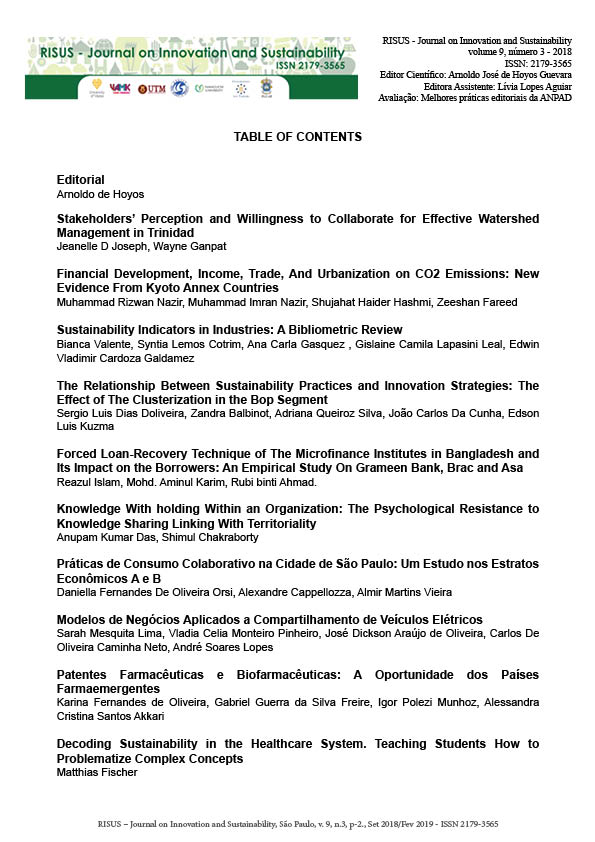BUSINESS MODELS APPLIED TO THE SHARING OF ELECTRIC VEHICLES
DOI:
https://doi.org/10.24212/2179-3565.2018v9i3p122-134Keywords:
Business models, Electric vehicles, Sharing vehiclesAbstract
It is very important that we may propose solution that allow us to diminish the consumption of gas and oil to run our light vehicle fleet. In this sense, a good alternative to the oil-dependent vehicles are the electric vehicles, although, consumers are resistant in adopting the electric car. A solution that was identified is electric car sharing. Considering the importance of promoting and diffusion of electric car-sharing, this paper aims to present the characterization of such business models implemented around the world, by using secondary-data analysis from each observed case, employing an adapted version of Weiller and Neely (2013) characterization model. The current research is a descriptive and qualitative based multiple-case study. The population is of 20 electric-car sharing models, located in 14 different countries. It was observed that the cost reduction of batteries accompanies the reduction of electric-car ownership cost. Moreover, the characterized business models did not make it any easier for technological innovation. It was also noted that predominantly, the risks and costs of electricity are borne by the service providers (taxed); that models encourage change in customer behavior; and that the models are not advantageous for long distances, given the low autonomy of the vehicles and restrictions of reach of the companies. Results corroborate Bohnsack, Pinkse and Kolk (2014), as it observes services-oriented business models. However, regarding the fear of limited vehicle autonomy, reported by Egbue and Long (2012) and Lim, Mak and Rong (2014), business models are not being elaborated and executed in the sense of solving it, which can be indicated as a discouraging factor to use of shared vehicles.Downloads
Published
2018-10-26
Issue
Section
Papers
License
This Journal is licensed under a Creative Commons Attribution-Non Commercial-No Derivers 4.0 International license.
1.The author (s) authorize the publication of the article in the journal;
2.The author (s) warrant that the contribution is original and unpublished and is not in the process of being evaluated in other journal (s);
3. The journal is not responsible for the opinions, ideas and concepts emitted in the texts, as they are the sole responsibility of its author (s);
4. The editors are entitled to make textual adjustments and to adapt the articles to the standards of publication.


